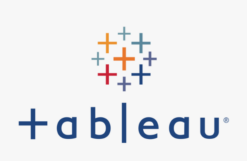Duration: 4 days – 28 hrs
Overview.
The API Designing Training course is designed to provide participants with a comprehensive understanding of the principles, methodologies, and best practices involved in designing effective and user-friendly Application Programming Interfaces (APIs). This course is ideal for software engineers, developers, and architects who are involved in creating APIs for various applications, services, or platforms.
Objectives
- Understand the fundamentals of API design and its significance in software development.
- Learn the key principles and guidelines for designing well-structured and intuitive APIs.
- Explore different architectural styles and patterns for API design.
- Gain knowledge of RESTful API design principles and its practical implementation.
- Discover techniques for versioning, documentation, and backward compatibility in API design.
- Understand the importance of security, authentication, and authorization in API design.
- Learn about error handling and exception management in APIs.
- Explore advanced topics such as hypermedia APIs and GraphQL.
- Gain hands-on experience in designing APIs through practical exercises and real-world case studies.
- Stay up-to-date with the latest trends and emerging practices in API design.
Audience
- Students and Graduates
- Software Engineers and Developers
- Software Architects
- API Developers and Integrators
- IT Professionals and Consultants
- System Analysts
- IT Managers and Decision Maker
- API Designers
- Architects
Pre- requisites
- Basic understanding of software development principles.
- Familiarity with web technologies (e.g., HTTP, REST, JSON).
- Knowledge of at least one programming language.
- Understanding of software design principles (modularity, abstraction, encapsulation).
Course Content
Module 1: Introduction to API Design
- Importance of API design in software development
- Key principles and characteristics of well-designed APIs
- Understanding the role of APIs in modern applications
Module 2: API Design Fundamentals
- Defining API requirements and goals
- Design considerations for usability and developer experience
- API design process and lifecycle
Module 3: Architectural Styles for API Design
- Overview of different architectural styles (e.g., REST, SOAP, RPC)
- Choosing the appropriate architectural style for the API
- Comparing and contrasting different architectural styles
Module 4: RESTful API Design Principles
- Principles of Representational State Transfer (REST)
- Resource modeling and URI design
- HTTP methods and status codes for RESTful APIs
- Handling authentication and authorization in RESTful APIs
Module 5: API Versioning, Documentation, and Backward Compatibility
- Strategies for API versioning
- Effective documentation practices for APIs
- Ensuring backward compatibility in API design
Module 6: API Security and Authentication
- Authentication and authorization mechanisms
- Securing API endpoints and data
- Best practices for handling security in API design
- Implementing API security standards (e.g., OAuth, JWT)
Module 7: Error Handling and Exception Management
- Designing error responses and status codes
- Handling exceptions and errors in APIs
- Techniques for graceful error handling
Module 8: Advanced Topics in API Design
- Hypermedia APIs and HATEOAS (Hypermedia as the Engine of Application State)
- Introduction to GraphQL and its benefits
- Exploring emerging trends in API design (e.g., gRPC)
Module 9: API Testing and Validation
- Testing strategies for APIs
- Tools and frameworks for API testing
- Validating API responses and data consistency
Module 10: Practical Exercises and Case Studies
- Hands-on exercises to design and implement APIs
- Real-world case studies to analyze and evaluate existing APIs
- Best practices for testing and validating APIs
Module 11: API Documentation and Developer Experience
- Documentation standards and tools for APIs
- Enhancing developer experience through well-documented APIs
- Creating API reference documentation and interactive documentation
Module 12: Future of API Design
- Emerging trends and technologies in API design
- Considerations for designing APIs for microservices and cloud-native architectures
- Adapting to evolving industry standards and practices








